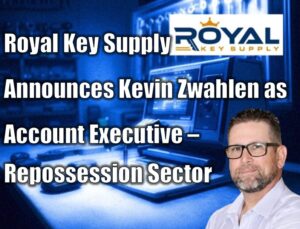Editorial
As we all know the state of the repossession industry has changed drastically in the last few years. What was once a very lucrative industry for all who ran their businesses well has become one of distrust and infighting that is seeing costs rise and revenues plummet. In the past, the relationship was lender-to-agent, today the relationship is lender-to-forwarder-to skip company-to-agent, or some variation. This has translated to a highly competitive arena that does not allow much room for movement, and has bred a sense of discourse across all levels of the industry.











More Stories
Colorado Bill Aims to Severely Impact All Repossession Operations
Today is Fallen Agents Day – 2026
From Auction Cutting to Field Programming: The Structural Shift No One Budgeted For
Bad Apples in the Repossession Industry
Why Self-Help Repossession Is Taken for Granted — and Why Losing It Would Hurt Consumers Most
A Necessary Distinction: Financial Oversight vs. Financial Control